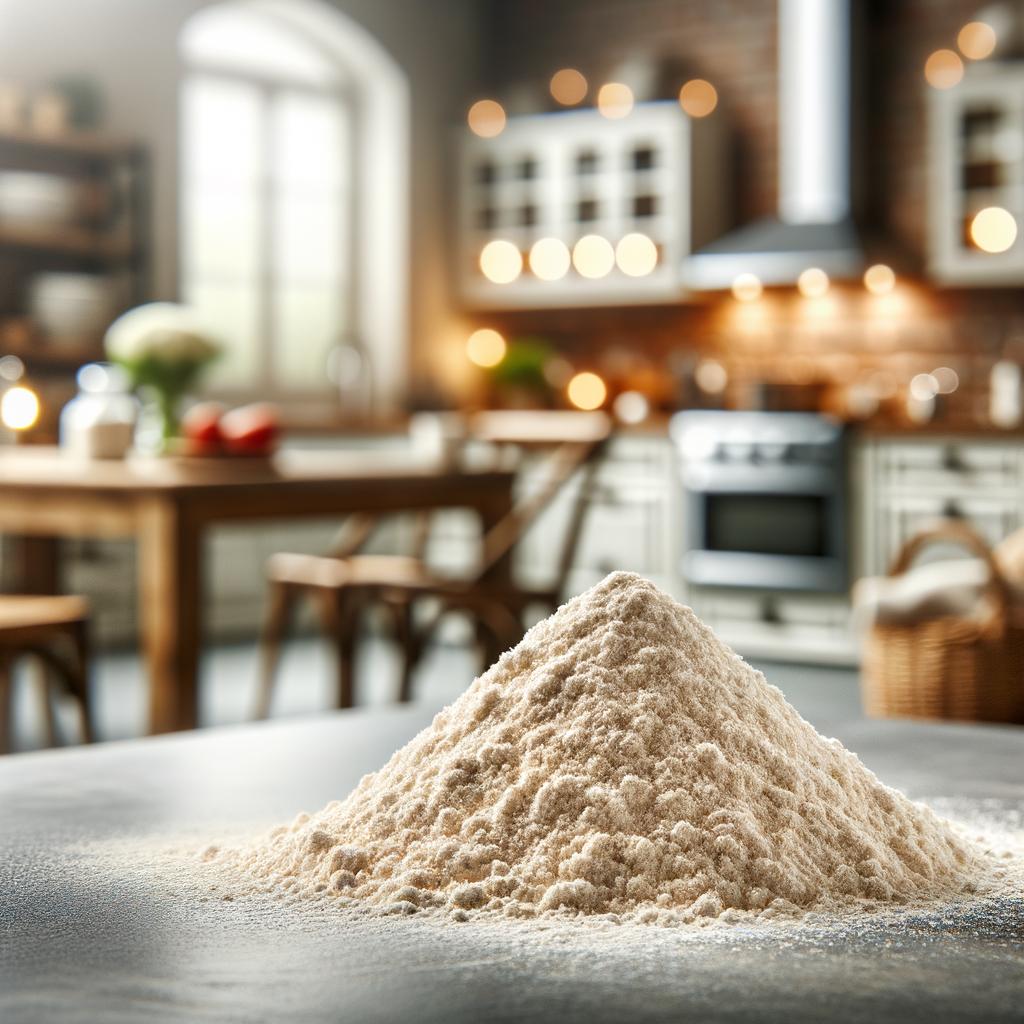Spelt Flour

Description Spelt flour, a cherished gem in the world of ancient grains, is a versatile and nourishing ingredient that carries a deep, nutty flavor. It boasts a beautiful, warm beige color and a fine, soft texture that is pleasing to the touch. Spelt flour is known for its unique ability to absorb more water than other flours, resulting in a moist, tender crumb in baked goods. Its rich, slightly sweet and earthy taste sets it apart from its wheat counterparts, making it a favorite among bakers and chefs alike.
Primary Uses Spelt flour is commonly used in a variety of culinary applications. Its robust flavor and superior water-absorbing capacity make it a perfect choice for bread, pasta, muffins, pancakes, and cookies. It's a key component in a range of cuisines, from the rustic loaves of Europe to the hearty pastas of Italy. Beyond its culinary uses, spelt flour has also been used for medicinal purposes. It was believed by ancient civilizations to have healing properties, and today it's often used in natural remedies for digestive health.
History The history of spelt flour is as rich and deep as its flavor. It hails from ancient civilizations, with evidence of its use dating back over 7,000 years. Spelt was revered in ancient Greece and Rome, symbolizing wealth and abundance. It was even used as a currency in medieval times. Despite being overshadowed by modern wheat in the 19th century, spelt flour has seen a resurgence in popularity in recent years as a healthful alternative to common wheat. The story of spelt flour is one of resilience and timeless appeal, a testament to its enduring charm and versatility.
Nutritional Information Spelt flour is a powerhouse of nutrition. It's packed with an array of essential nutrients, including dietary fiber, protein, and a host of minerals like manganese, magnesium, and zinc. It also contains a good amount of B-vitamins, which are vital for energy production and overall health. Compared to regular wheat flour, spelt flour has a higher protein content and is easier to digest. However, it's important to note that spelt flour does contain gluten, making it unsuitable for those with celiac disease or gluten sensitivity. The story of spelt flour is one of rich history, culinary versatility, and nutritional wealth, making it a worthy addition to any kitchen.

